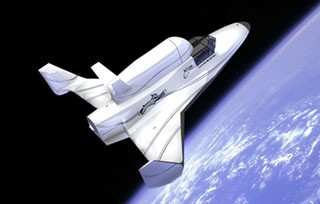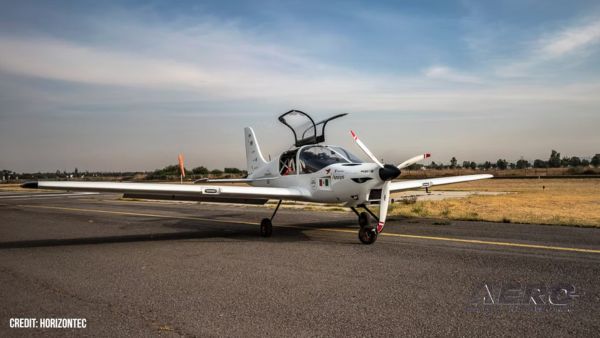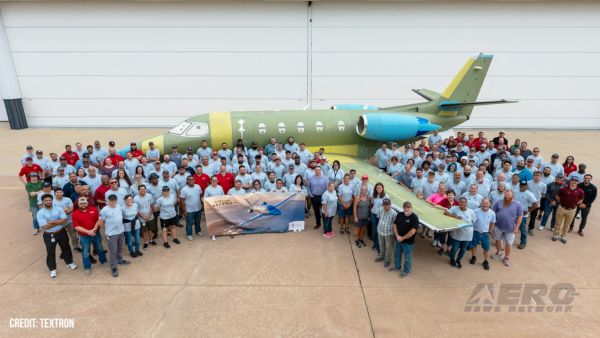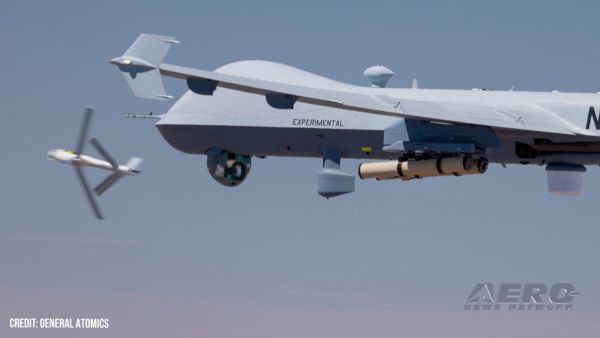Tue, Aug 18, 2015
Will Be Carried Into Space Aboard The XCOR Lynx Spacecraft
Citizens in Space, a project of the United States Rocket Academy, has announced a list of 10 experiments selected for its first research mission on the XCOR Aerospace Lynx spacecraft.

The experiments will be carried aboard the Lynx Cub Payload Carrier, an open-source payload carrier developed for the Lynx spacecraft by Citizens in Space. Experiments will be controlled in flight by a Citizens in Space science-mission-specialist astronaut.
The experiments announced today cover a wide range of subjects from microgravity crystallization to plant growth, antimicrobial materials for space habitats, and the interaction of water with lunar surface materials. The experimenters are equally diverse.
"Mission One includes citizen scientists working at every level, from high school to professional research labs," said Dr. Justin Karl, Chief Payloads Officer for Citizens in Space.
The experiments selected are:
- Angelicvm Aerospace Foundation of Santiago, Chile. Crystallization Rates in Microgravity.
- Bishop Planetarium at the South Florida Museum in Bradenton, Florida. Microgravity Water Electrolysis Optimization.
- CD-SEAS of Honolulu, Hawaii. Effectiveness of Anti-Microbial Coatings in Microgravity Conditions.
- Florida International University of Miami, Florida. Regolith Compression Mechanics in Reduced- and Micro-Gravity.
- Flightsafety Makers of Columbus, Ohio. Characterization of Local Inertial Loading and Comparison with Avionics Data.
- Syncleus of Philadelphia, Pennsylvania. Realtime Payload Conditions Monitoring.
- NewSpace Farm LLC of Seattle, Washington. Microgravity Botany Pod Hardware Evaluation..
- The Pinkowski Group of Montrose, Pennsylvania. Concentration Gradient Equalization Rates.
- Terran Sciences Group of Orlando, Florida. Inter-Payload Heat Transfer Characterization.
- Texas Southern University of Houston, Texas. Non-Fick Diffusion in Microgravity.
- Students for the Exploration and Development of Space at the University of Central Florida in Orlando. Hydrophobic Coating Effectiveness for Space Applications.
- University High School of Orlando, Florida. Investigation of Regolith Hydration in Zero Gravity.
Citizens in Space is continuing its call for experiments.
The mission announced Thursday is one of ten flights purchased by Citizens in Space. "Citizens in Space is making these flight opportunities available at no cost to citizen scientists," Dr. Karl said. "In return, citizen scientists pledge to make their experiment designs and data openly available to the entire community. Our goal is to create a huge catalog of flight-proven experiments that future researchers can draw from.
"As science-fiction writer Robert Heinlein once said, 'You can't pay it back. You have to pay it forward.'"
(Image from file)
More News
Improper Installation Of The Fuel Line That Connected The Fuel Pump To The Four-Way Distributor Analysis: The airplane was on the final leg of a flight to reposition it to its home>[...]
Decision Altitude (DA) A specified altitude (mean sea level (MSL)) on an instrument approach procedure (ILS, GLS, vertically guided RNAV) at which the pilot must decide whether to >[...]
“With the arrival of the second B-21 Raider, our flight test campaign gains substantial momentum. We can now expedite critical evaluations of mission systems and weapons capa>[...]
Also: Potential Mars Biosignature, Boeing August Deliveries, JetBlue Retires Final E190, Av Safety Awareness Czech plane maker Bristell was awarded its first FAA Type Certification>[...]
Also: Commercial A/C Certification, GMR Adds More Bell 429s, Helo Denial, John “Lucky” Luckadoo Flies West CAF’s Col. Mark Novak has accumulated more than 1,000 f>[...]
 NTSB Final Report: Evektor-Aerotechnik A S Harmony LSA
NTSB Final Report: Evektor-Aerotechnik A S Harmony LSA ANN's Daily Aero-Term (09.15.25): Decision Altitude (DA)
ANN's Daily Aero-Term (09.15.25): Decision Altitude (DA) Aero-News: Quote of the Day (09.15.25)
Aero-News: Quote of the Day (09.15.25) Airborne 09.12.25: Bristell Cert, Jetson ONE Delivery, GAMA Sales Report
Airborne 09.12.25: Bristell Cert, Jetson ONE Delivery, GAMA Sales Report Airborne 09.10.25: 1000 Hr B29 Pilot, Airplane Pile-Up, Haitian Restrictions
Airborne 09.10.25: 1000 Hr B29 Pilot, Airplane Pile-Up, Haitian Restrictions



